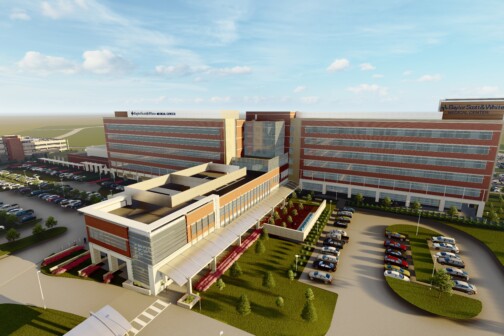UT Southwestern researchers may have moved closer to identifying patients at greatest risk of side effects from immunotherapy treatments.
Immunotherapy mobilizes the patient’s immune system to fight cancer, and researchers found that there are molecules called cytokines that signal the immune system to fire up to fight disease. If cytokines are low in a patient, that patient is more likely to develop immune-related side effects.
The studies focused on a variety of cancer types and widely used immunotherapy drugs and were funded from a grant from the American Cancer Society. They will expand to multicenter clinical trials to look at a variety of predictors for immunotherapy side effects in 60 0patients and 130 different auto-antibodies, genetic tests for genes associated with autoimmune and inflammatory diseases and functional tests.
“Almost a decade into the remarkable era of cancer immunotherapy, immune-related adverse events continue to plague patients and puzzle clinicians,” said senior author Dr. David Gerber, Professor of Internal Medicine and Clinical Sciences and Associate Director for Clinical Research in the Harold C. Simmons Comprehensive Cancer Center, via release. “While some of these toxicities, such as rash and thyroid dysfunction, can be easily managed, others such as pulmonary toxicity may result in hospitalization and even ICU-level care. Identifying these cytokines and other biomarkers for the prediction and tracking of autoimmune toxicity could help us customize immunotherapy, tailor monitoring and increase patient safety, and possibly even expand the use of immunotherapy to populations that are currently excluded.”
“Regulating the immune system is extremely complex, and a variety of patient-specific factors, including genetic predisposition, humoral immunity, interactions with the microbiome, and functional activation all play important roles in determining whether a beneficial or detrimental immune response develops. Nevertheless, our initial findings bode well for ultimately developing patient-specific strategies for effective and safe cancer immunotherapy,” said Dr. Wakeland via release.
The findings were published in the British Journal of Cancer, Shaheen Khan, Assistant Professor of Immunology, was first author of the study. Dr. Saad Khan, Assistant Professor of Internal Medicine and with the Simmons Cancer Center, Dr. Yang Xie, Associate Professor of Clinical Sciences and Bioinformatics, Dr. Quan-Zhen Li, Associate Professor of Immunology and Internal Medicine, and Dr. Farjana Fattah, Assistant Professor of Pathology and with the Simmons Cancer Center also participated in the research at the Harold Sammons Cancer Center.





